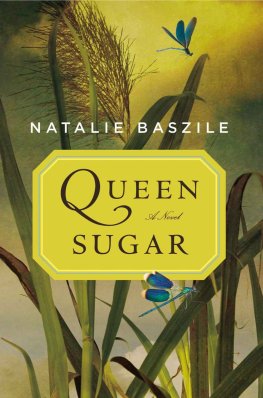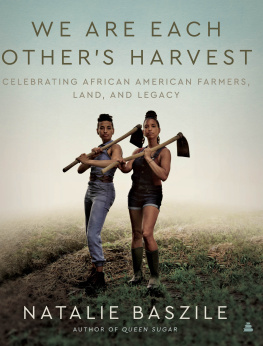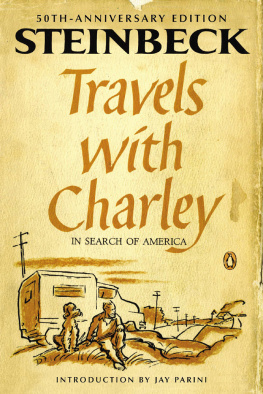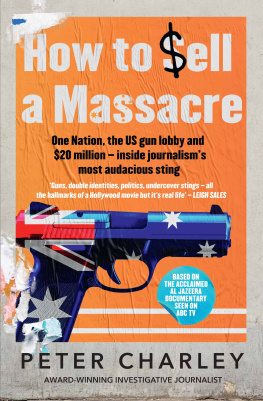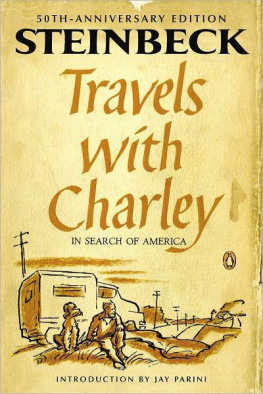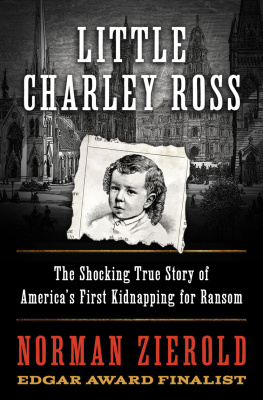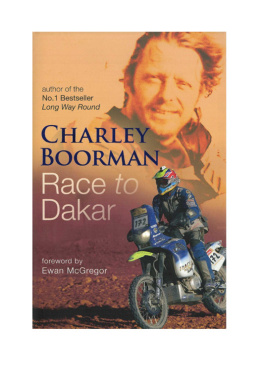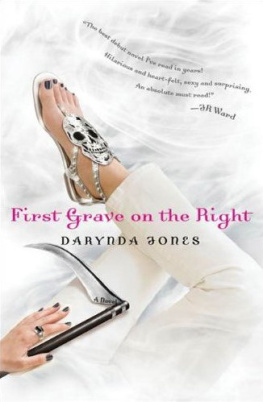Natalie Baszile
Queen Sugar
Thank you, first and foremost, to my family. To Hyacinth and Chloe, the lights of my life, and my husband, Warrington, who has always been in my corner. Thank you for believing in me. To my parents, Janet Baszile, a woman of extraordinary strength and wisdom, and my father, the late Barry Baszile, who was always willing to drive and more than happy to cook. To my sister, Jennifer, for the early-morning calls. To Aunt Vicie, Aunt Royanna, Antionette, Antonio, Uncle Dan, Marvin, Michelle, Pop and Aunt Dell, Uncle Sonny, Uncle Charles, and Aunt Mary thank you for your huge hearts and for always welcoming me home. To Gig, Big Warrington, Shanga, Monique and Kala Parker for all the summers.
I am eternally grateful to my adopted Louisiana family, without whose help this book would not have been written. First, to Rene Simon, Stephen Stirling, and Paul Fitch for your kindness, generosity, expertise, and unwavering support. You have been the best friends and guides I could have hoped for. To the Shea family: Stuart and Becky, Suzy, Maureen, Katie, Miss Barbara, and their families thank you for helping with research and for making me feel welcome. A special thank you to Stephanie Shea for your friendship, the birthday invitation, and the afternoon drive that changed everything. To Maggie, Aimee, James, Paul, and Grace Simon for always setting a place for me at your table. To Patricia France for my first Mardi Gras shoe and Mrs. Daniels for being a gracious New Orleans hostess. To Suzonne, Sarah and Taylor Stirling for opening your home, and to my buddy Philip for the flowers and the fishing lessons. Thanks also to Leigh McGowan, Gail Porter, Peter Patou, and Suzonne Stirling, for the wonderful meals and excellent conversation. To Chad and Clint Judice. To Cleveland Provost for your patience and quiet wisdom.
To my agent, Kimberley Witherspoon for believing in my work. To William Callahan for those first kind words. To Allison Hunter and Monika Woods.
A thousand thanks to my secret weapons: Dylan Landis a true friend and brilliant surgeon thank you for the thousands of hours, for never leaving my side, and for the pixie dust. To David Groff, who appeared at precisely the right moment thank you sharing my vision, for your encouragement, and for always making time. To Jim Krusoe for your ability to offer the one, surprising suggestion.
I owe a tremendous debt to Warren Wilsons MFA Program for Writers. To Kevin Mc McIlvoy, David Haynes, Diana Wagman, Adria Bernardi, and Debra Spark for your guidance and outstanding teaching. To the members of the novel workshop, especially Diane Arieff and Larry Bingham who encouraged me to keep going, and to my fellow Wallies, Catherine Brown and Gabrielle Viethen. A special thank you to Ellen Bryant Voight and Peter Turchi for providing the beacon.
To my wonderfully supportive writing group: Louise Aaronson, Catherine Alden, Leah Griesman, Susi Jensen, Kathryn Ma, Bora Reed, Elana Shapiro and Suzanne Wilsey.
Thank you, dogs and cats at the San Francisco Writers Grotto, for your friendship and wise counsel. Especially to Julia Scheeres, Laura Fraser, and Caroline Paul.
To Alison Hiraga and Barbara Brooks for being good friends and trusted readers.
To the Ragdale Foundation for providing much needed time and space, and Sylvia Clare Brown for her generosity. To my lovely Ragdale spouses, Rick Hilles, Raymond Johnson, Gregory Mertl, Robin Messing, Nancy Reisman, and Sarah Van Arsdale.
To the Virginia Center for the Creative Arts, and the generous souls at Hedgebrook, particularly Nancy Nordhoff, Vito Zingarelli, Amy Wheeler, and their staff for their radical hospitality.
To the wonderful, insightful, supportive folks at Penguin Random House: Pamela Dorman, Kiki Koroshetz, Beena Kamlani, Carolyn Coleburn, Holly Watson, Winnie De Moya, Paul Lamb, Nancy Sheppard, Roseanne Serra, Carla Bolte, Clare Ferraro, Kathryn Court, and the entire sales and marketing teams of both Viking and Penguin.
Finally, to Coach Flagler and to the late Charles Muscatine, who were there at the beginning.
I have a field on my mind that needs plowing.
Anne Wilkes Tucker
Three days ago, Charley Bordelon and her eleven-year-old daughter, Micah, locked up the rented Spanish bungalow with its cracked tile roof and tumble of punch-colored bougainvillea and left Los Angeles for good. In an old Volvo wagon with balding tires and a broken air conditioner, they followed the black vein of highway first skirting the edge of Joshua Tree, where the roasted wind roared in their faces, then braving the Mojave Desert. They pushed through Arizona and New Mexico, and sailed over the Texas prairie.
Twenty-four hours ago, they crossed into Louisiana where the cotton and rice fields stretched away in a lavish patchwork of pale greens and browns, and a hundred miles after that, where the rice and cotton fields yielded to the tropical landscape of sugarcane country.
Now it was the next morning, their first full day in Saint Josephine Parish. They hadnt seen a house or car since they turned off the Old Spanish Trail, and the road, which crossed over the Bayou Teche, was leading them farther away from town, farther out into the country, and Charley whod never seen real sugarcane before yesterday thought she should have trusted her instincts; thought that if shed just listened to the small voice that whispered take the map, theyd be there by now. Instead, she had listened to her grandmother, Miss Honey, with whom she and Micah now lived. Put that away, Miss Honey had said at breakfast that morning as Charley spread the map over the kitchen table. I know how to get there. Just let me get my purse. Now here they were Charley and Micah and Miss Honey wandering hopelessly, like three blind stooges, through south Louisianas cane country, creeping down one ragged back road till it dead-ended in a grass-choked gulley before trying another, while the sun got hotter and the air grew soupier; burning up precious time as they searched for the turnoff that would lead Charley to her fields. She had inherited eight hundred acres of sugarcane land from her father, Ernest. For the last ten months, she had pored over more aerial photos and assessors maps than she cared to count, signed documents and placed phone calls. She had planned what she could from a distance. The fields Charley had thought of for almost a year were out there somewhere. Land she had to get ready for the harvest in October. God help us, she thought.
It was eight forty-five. Charley was supposed to meet Wayne Frasier at nine. The cup of Community Coffee, with its bitter note of chicory, had made her queasy. Maybe it was the coffee, but maybe not, Charley thought, as she remembered how her mother accused her of being a city girl and warned her not to make this move. Charley swore her mother was wrong, but now she thought maybe it was true. She was accustomed to measuring distance in freeway off-ramps, not hectares or miles, weighing things in pounds rather than bushels or tons. The only crop she had ever harvested were the Meyer lemons that hung lazily from the trees along her backyard fence. The only soil she ever tended came in bags from the Home Depot. She exhaled heavily. If she were a country girl, she thought, she could scan the horizon and know which of these godforsaken roads led to her fields. But she wasnt a country girl. Not even a little.
Charley turned to her window and caught a scent of Louisiana on the June breeze; the aroma of red clay, peppery as cayenne, musty as compost, and beneath it, the hint of mildew and Gulf water. She marveled at how different the landscape was from anything shed known back in California: the stretch of Highway 5 between Los Angeles and San Francisco with its endless miles of almond and pistachio orchards, vast stretches of orange groves whose blossoms perfumed the air on early-spring mornings, rolling acres of grape vineyards, tomato and cotton fields, and of course, the uninterrupted miles of reeking cattle lots all of it with the spiny silhouette of the Sierra Nevada, like a promise, along the horizon. Charley imagined Los Angeles, with its traffic and smog and relentless sprawl, and beyond it, the never-ending coastline and immeasurable Pacific, ridiculously beautiful in the honeyed light of a southern California afternoon. Now the vast Pacific had been replaced by an ocean of sugarcane: waist-high stalks and slender, emerald-green leaves with tilled soil between. Cane as far as her eyes could see.

